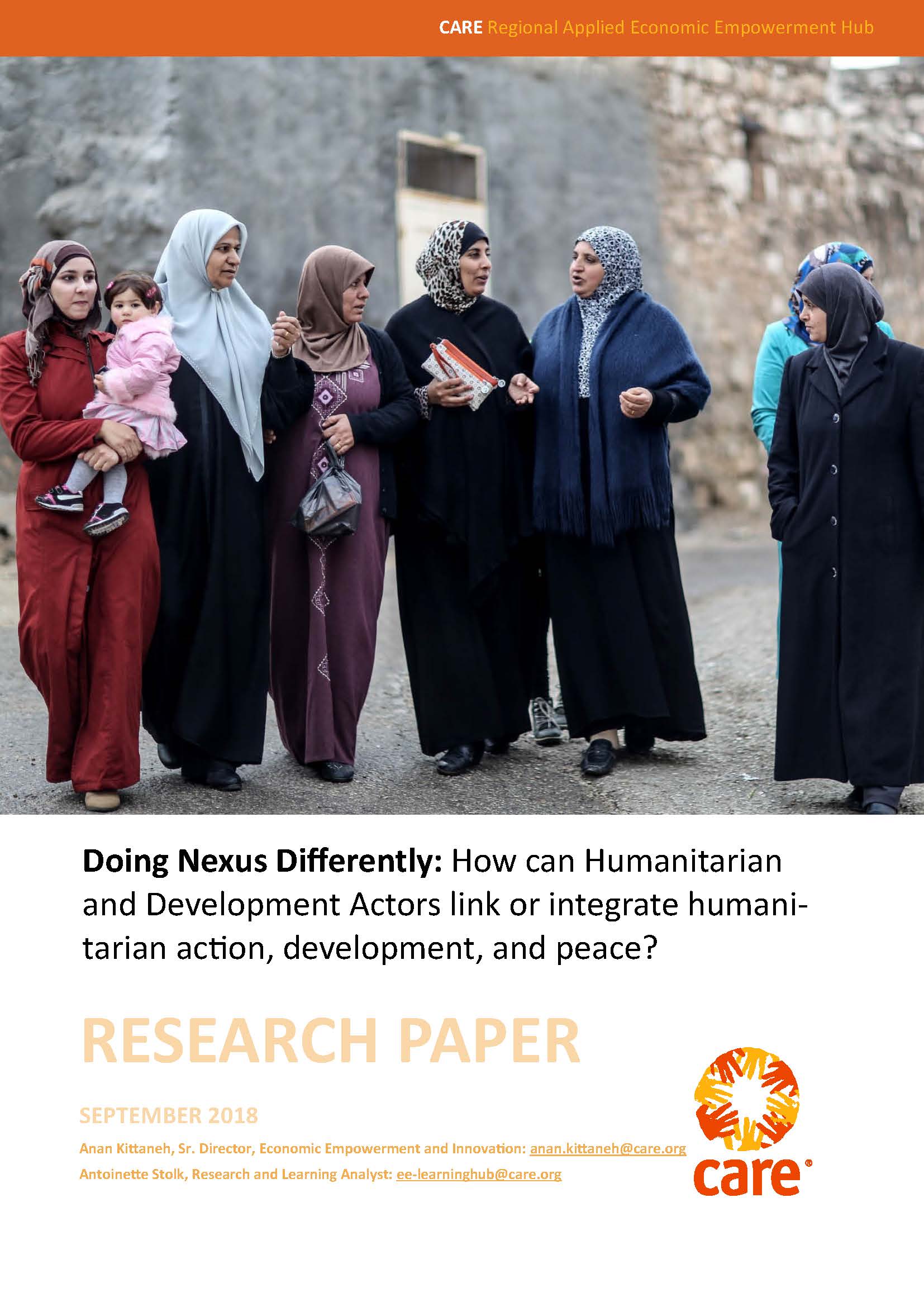2018 | CARE

For the people we work with and for, the divisions and brick walls between humanitarian and development work do often not make sense. So why does the sector keep this division as the norm, rather than the exception? At CARE, we're exploring and documenting the power of Nexus programming to help bridge this division; both the Double Nexus (closer integration of humanitarian assistance with development) and Triple Nexus (also including peace/security). As part of this organizational learning process, the Regional Applied Economic Empowerment Hub in the Middle East and North Africa (MENA) has recently published a paper, in collaboration with more than 30 thought leaders and practitioners. The Hub learned that the Nexus is not only here to stay at the global level but moreover, already has made a huge difference on the ground.
An exciting range of examples from the ground shows how innovative connections between short and long-term activities are already made; all coming from teams who were able to respond swiftly and boldly to new information, impact group's needs and changing contexts. They range from women's empowerment programs including emergency response activities in times of crisis, immediate mobile health teams while also engaging and rehabilitating existing health care system, VSLAs that allow participants to deal with immediate needs as well as build long-term resilience. We also see innovative work with social-economic hubs (e.g. CSOs/CBOs/local NGOs) that play a key role in local community development, reducing social tensions as well as can identify and respond to upcoming urgent needs, and many more. Building on these examples and regional experience, the Hub is promoting a list of key messages that will allow for a bottom-up interpretation of the Nexus. Unfortunately, most current (global) conversations about Nexus programming are being shaped by and implemented in top-down approaches, with limited inclusion of local voices and viewpoints. This creates a wide gap between our beneficiaries and impact groups, and those who fund or influence aid. The programmatic guiding principles promoted by the Hub are bottom-up: Localization; Local ownership and participation; Evidence-based Analysis informing our design, implementation, and evaluation; Being politically smart; Promoting Gender and Women's voices throughout; and Integrating Resilience. In addition, three bottom-up guiding principles focus on organizational structure, namely increasing our capacity to apply adaptive management; increase our capacity to pilot and test with cross-sectoral teams; as well as make a reinvestment in program quality.
This learning process continues, with CARE encouraging global practitioners to submit their learning stories online to drive wider sectoral innovation.

1621 North Kent Street, Ste 900,
Arlington, VA, 22209
P 202.534.1400
F 703.276.1433
Website Photos: © mari matsuri
